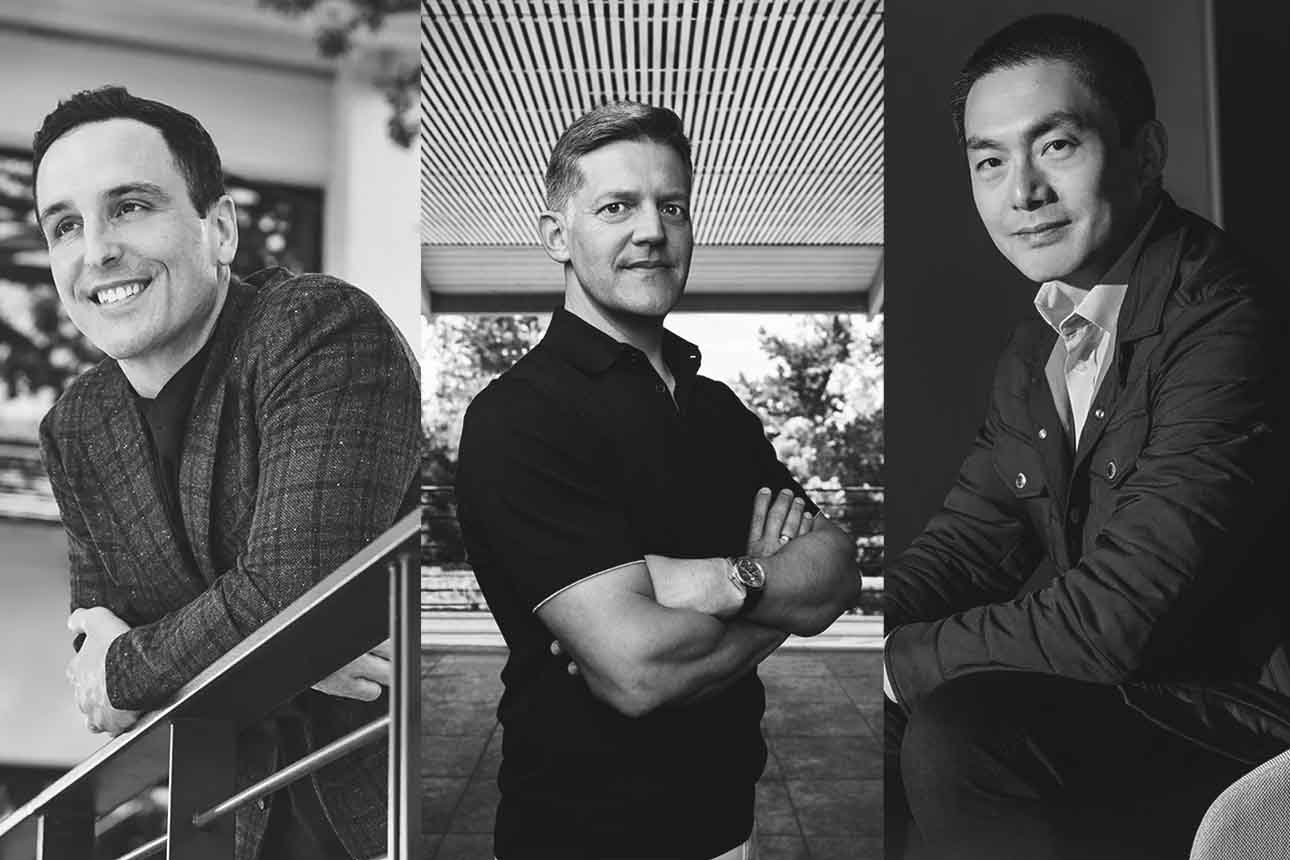Botha Steps Aside at Sequoia, Lin and Grady Take Charge
The storied venture firm turns the page on drama and zeroes in on the next wave of AI deals, with tighter coordination across stages.
Topics
News
- Adani Power Sets Up Nuclear Subsidiary
- Musk Unveils xAI Overhaul, Lunar AI Ambitions
- Former GitHub CEO Dohmke Raises $60 Million to Build AI Code Infrastructure
- Leadership Shakeup Deepens at xAI as Two Co Founders Exit
- India Slashes Social Media Takedown Window to Three Hours
- Cisco Moves to Relieve AI Data Center Gridlock With New Chip

Sequoia Capital has replaced its top steward, Roelof Botha, in one of Silicon Valley’s most closely watched transitions, elevating longtime investors Alfred Lin and Pat Grady to run the storied venture firm.
Botha, 52, will remain an adviser and retain his board seats at portfolio companies.
Partners had asked him to step aside after concerns about his leadership style and a bumpy stretch for the partnership, The Wall Street Journal reported, citing people familiar with the matter.
In a note posted online on Tuesday, Botha called longtime Sequoia investors Alfred Lin and Pat Grady the firm’s “new stewards.”
The move formalizes an internal handover that Sequoia likes to cast as stewardship rather than a CEO swap, but few firms in venture capital carry as much symbolic weight.
Sequoia is the early backer of Apple and Google, and more recently Airbnb, DoorDash, Snowflake and Reddit. Lin, 53, has been central to several of those wins. Grady, who turned 43 this week, has led the firm’s growth investing machine through blockbuster deals like Snowflake and Zoom.
Together they now inherit a franchise that still commands boardrooms, yet has been rattled by rare public controversy and an AI investment boom that is forcing even dominant firms to move faster.
The leadership change arrives after a tumultuous two years. In 2023 Sequoia split its once-sprawling brand into three independent firms, cleaving off its China and India–Southeast Asia arms into HongShan and Peak XV Partners amid rising geopolitical friction and governance complexity.
The US and Europe business kept the Sequoia name, while local teams in Asia took their own brands and cap tables. It was an unusually public re-wiring of a house that long prized quiet continuity.
The firm stumbled into reputational crossfire this year when partner Shaun Maguire used social media to attack New York mayor-elect Zohran Mamdani, comments that angered founders and some limited partners, and preceded the August resignation of Sequoia’s chief operating officer, Sumaiya Balbale, the Financial Times reported.
Sequoia did not announce any public disciplinary action against Maguire, and Botha did not address the episode in detail in his October public remarks.
The new co-stewards intend to turn the page on political theater, presenting a less partisan face and a deeper focus on artificial intelligence, Bloomberg reported on Thursday, 6 November, citing people familiar with the matter.
Grady, who identifies as liberal, and Lin, a moderate, want Sequoia to be seen as a home for a “healthy conflict of ideas” rather than a megaphone for one partner’s views.
“I do not agree with everything my partners say,” Grady wrote in July, adding that vigorous debate is part of Sequoia’s culture. The firm has discussed balancing its public posture much as it did in the era when Republican donor Doug Leone and Democratic donor Michael Moritz jointly led the shop.
The AI emphasis is not new. The firm backed OpenAI in 2021 and reinvested this year at around a $300 billion valuation, Bloomberg reported, adding that it has also led rounds in enterprise search startup Glean and legal-tech firm Harvey, valued at about $8 billion, and in OpenEvidence, valued at about $6 billion.
Still, some partners privately regret not owning more of the breakout winners as mega-rounds got snapped up by crossover funds and strategics.
That competition will intensify under Lin and Grady, who now have to win allocations in a market where the hottest AI founders can choose their cap table and where valuations keep climbing.
Botha’s tenure as top steward began in 2022, capping a two-decade run that started after PayPal, where he served as CFO and helped take the company public in 2002.
As managing partner he shepherded the 2023 global breakup and dealt with fallout from FTX, where Sequoia lost $214 million and issued a rare apology to limited partners.
He also navigated a public spat involving Klarna’s governance. The leadership vote that produced Lin and Grady was unanimous and included Botha and former stewards, keeping with Sequoia’s ritualized approach to succession.
Lin brings a reputation for discipline and founder rapport at the earliest stages. His early Airbnb bet minted one of the firm’s largest paydays, and he has been central to DoorDash and Reddit. He now co-leads early-stage investing with partner Luciana Lixandru.
Grady has long run Sequoia’s growth fund with Andrew Reed and is credited internally with setting the pace on later-stage bets, including Okta and fresh pushes in AI like Harvey and OpenEvidence. Their pairing is designed to tighten the handoff between seed, venture and growth so Sequoia can move across stages without friction.
Venture funding has rebounded on the strength of AI, with global totals up sharply in the September quarter, Reuters reported, but the dollars are concentrated in a handful of training-compute platforms and foundation-model players.
That concentration squeezes even elite firms: the price of admission is larger checks and faster decisions, while governance risks rise if investors chase speed over structure. Lin and Grady will need to prove Sequoia can still set terms, not just follow momentum, and that it can do so without repeating the excesses of the last cycle.






